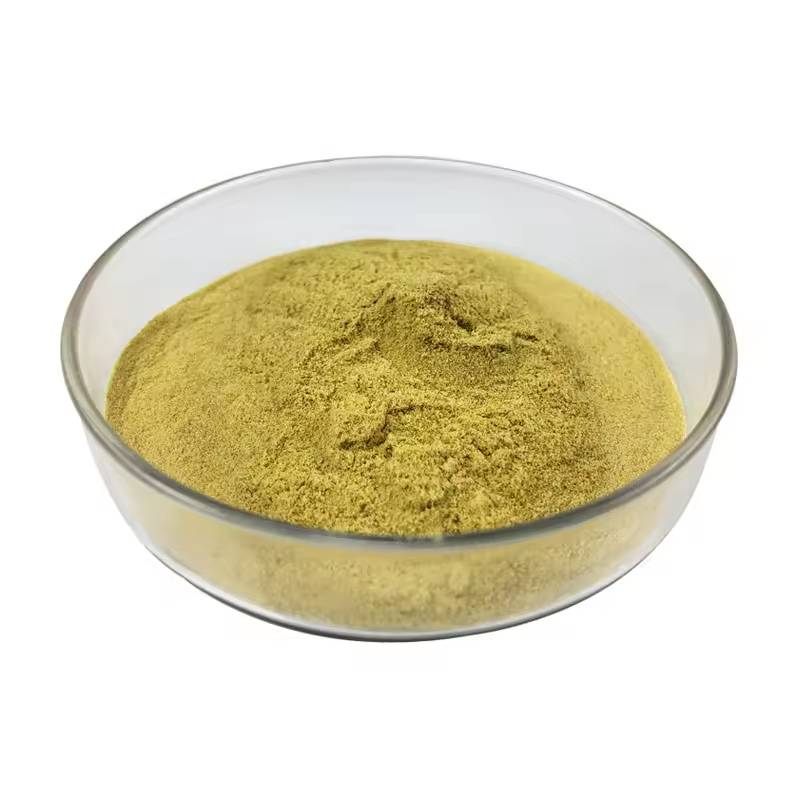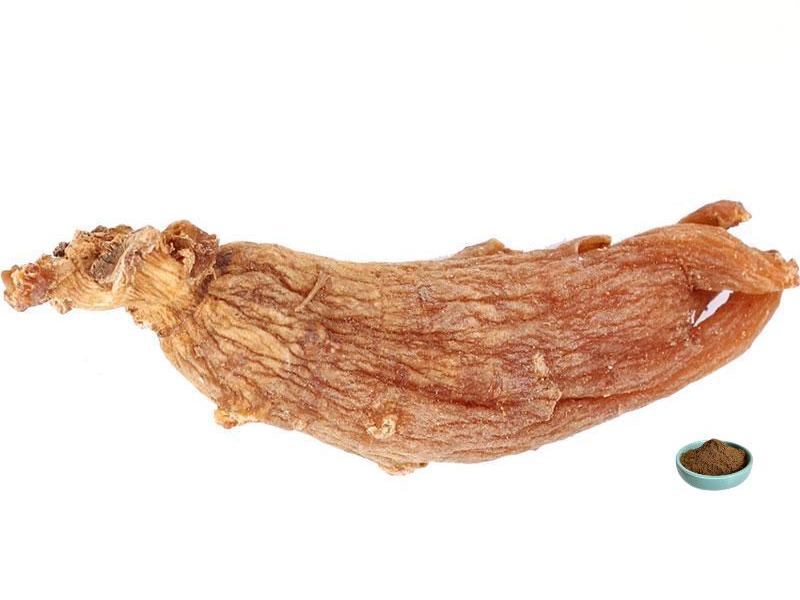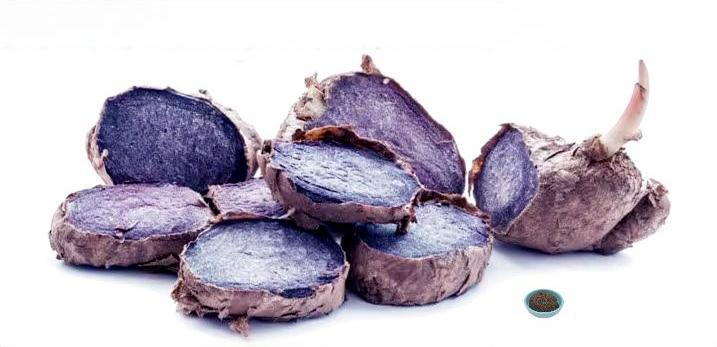Rosemary Extract Rosmarinic Acid 50% by HPLC
Source:Rosemary Leaf
Active Ingredients:Rosmarinic Acid
Assay:50%
Testing Method:HPLC
Appearance:Light Yellow Powder
Pesticide Residue:Comply with (EC) No 396/2005 Standard
- Description
- Data Sheet
- Certificate
-
What is Rosemary Extract Rosmarinic Acid ?
Rosmarinic acid is a naturally occurring phenolic acid compound condensed from caffeic acid and 3,4-dihydroxyphenyl lactic acid. Rosmarinic acid is widely distributed and is especially common in the Comfrey, Labiatae, and Cucurbitaceae families. Italian chemists first extracted and isolated from rosemary Rosmarinus officinalis Linn and named it rosemarinic acid. As an important polyphenolic antioxidant, rosemarinic acid has many applications in food and cosmetics and is excellent anti-inflammatory, antibacterial, anticancer, and other pharmacological activities.
Rosemary Extract Rosmarinic Acid is a water-soluble natural phenolic acid obtained from rosemary, family Labiatae. It is a natural, efficient, stable, heat-resistant, safe, non-toxic, with no side effects, water-soluble antioxidant, and green food additive.
Rosemary Extract Rosmarinic Acid 50% by HPLC supplied by Green Spring Technology selects fresh rosemary leaves; using a mortar and pestle, a grinding nail, or other suitable tools, it is broken into fine particles to increase the extraction efficiency; the crushed rosemary leaves are immersed with an organic solvent, and through solvent extraction, the rosemarinic acid is extracted from the plant tissues. Dissolve out. Then the solvent is recovered from the extract by distillation technology, leaving a solution containing rosemarinic acid, and finally, the rosemarinic acid is purified from the extract by crystallization technology, removing other impurities and obtaining high purity rosemarinic acid.
Green Spring has an excellent R&D team, an independent testing laboratory an experienced production team, a rigorous internal quality control process, and organizes production under ISO, HACCP, and other quality standards. All of the products we offer implement the highest international industry standards, complying with EU EC396, EU 2023/915 standards, and the highest solvent residue standards. We have passed Halal, Kosher, COSMOS, BRC, IFS, FDA, ISO, and many other certifications.
Specification:
Product Name
Rosemary Extract
Latin Name
Rosmarinus officinalis L.
CAS No.
20283-92-5
Source
Rosemary Leaf
Active Ingredients
Rosmarinic acid
Specification
50%
Testing Method
HPLC
Appearance
Light Yellow Powder
Pesticide Residue
Comply with (EC) No 396/2005 Standard
Regulation:
It conforms to EU regulations.
Looking for a Quotation?Benefits:
Anti-inflammatory
Numerous studies have demonstrated that rosemary extract rosemarinic acid has favorable anti-inflammatory effects. Complement activation usually occurs at sites of inflammation, and rosemarinic acid can covalently bind to the active complement substance C3b and thus inhibit complement activity without side effects. Cyclooxygenase-2 (COX-2) is a dangerous inflammatory factor, Scheckel et al. found that rosemarinic acid could inhibit the expression of the COX-2 gene in colon cancer cells and benign breast epithelial cells, and Lembo et al. demonstrated that rosemarinic acid could prevent medium-wave ultraviolet radiation-induced damage and reduce tumorigenicity in human keratinocyte cell lines. Inflammatory mediators such as tumor necrosis factor-α (TNF-α), IL-6, IL-8, and monocyte chemotactic protein 1, and promoted the production of protective IL-10.
Antibacterial
The antibacterial and antiviral properties of rosemary extract rosemarinic acid inhibit acute confusing infections and chronic infections, are resistant to UV rays, and inhibit the degradation of elastin; all of which make it an excellent natural additive to skin care products.
Anti-microbial
Rosemary extract rosemarinic acid has a certain inhibitory effect on bacteria, rosemarinic acid 500 mmol/L can inhibit staphylococci, and the inhibitory activity is affected by pH and ionic concentration. Abedini et al. found that rosemarinic acid 0.3-1.3 mg/mL inhibited Staphylococcus aureus 5001, Staphylococcus luttunensis T26A3, Staphylococcus maltophilus narrow-feeding monocytes, Enterococcus faecalis C159-6, Pseudomonas aeruginosa ATCC27583, Corynebacterium roqueforti, Mycobacterium smegmatis 5003, and Staphylococcus wolffii T12A12.
Rosemarinic acid inhibits Escherichia coli, Staphylococcus aureus, Salmonella, and Bacillus subtilis by destroying the cellular structure and proteins of the bacteria and inhibiting the Na+, K+-ATPase activity of the bacteria and the inhibition varies among different bacteria. In addition, rosemarinic acid has antiviral effects. Under acidic conditions, rosemarinic acid reacts with nitrite ions to give 6-nitro and 6,6-dinitro rosemarinic acids. These compounds acted as human immunodeficiency virus-1 integrase inhibitors at the micromolar level, inhibited viral replication in human T-cell leukemia MT-4 cells, and improved anti-integrase inhibition and antiviral effects.
Applications:
In the Food Field:
Rosemary Extract Rosemarinic acid, as a natural and highly effective antioxidant, can be used as a substitute for BHA and BHT in animal and vegetable fats and oils, dairy products, oil-enriched foods, confectionery, and baked goods; it can also be used as a spice for a variety of soups and flavored foods; and it has antiseptic and antimicrobial effects. In Japan, perilla extract, which is rich in rosemarinic acid, is used as a garnish to improve the shelf life of fresh seafood.
For Feed Product:
In animal husbandry, rosmarinic acid can be used as a feed additive to improve the antioxidant properties and stability of feed, thereby increasing animal performance and health.
In Pharmaceutical:
Rosemary Extract Rosemarinic acid has some antibacterial and anti-inflammatory properties and therefore has some applications in medicine, especially being used in traditional herbal medicine and some herbal preparations.
In Cosmetics:
Rosemary acid can be used in skin care products to dispel pigmentation, antioxidant, increase skin elasticity, delay aging and other effects; used in shampoo hair care products, can promote scalp blood circulation, improve hair loss, reduce the occurrence of dandruff, and stimulate the growth of hair, moisturizing hair. Therefore, rosemary extract rosemarinic acid can be used as an excellent additive in cosmetics.
-
Download
Rosemary Extract Rosmarinic Acid 50% by HPLC COA


 English
English French
French Spanish
Spanish Russian
Russian Korean
Korean Japanese
Japanese











